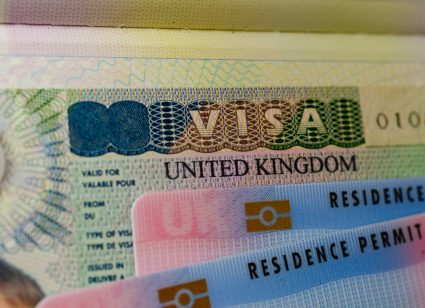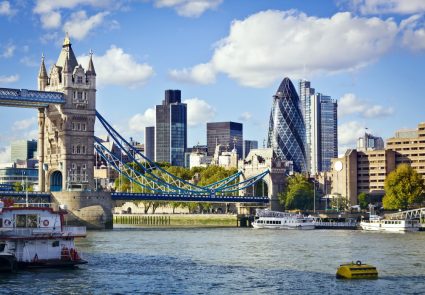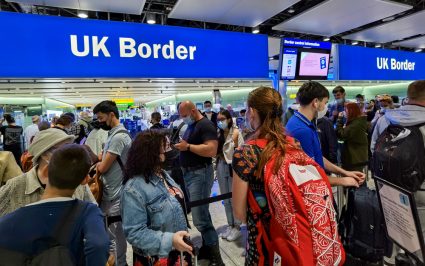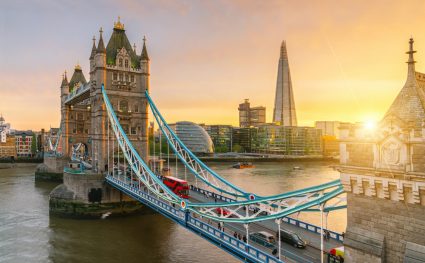Graduating from a United Kingdom university is a major accomplishment. Many students and young professionals are eager to stay in the country to build their careers and experience life in this vibrant and diverse nation.
However, securing a work visa can be complex and challenging. This article provides a comprehensive guide on how to stay in the UK after graduation, including information on work visas, permits, and the impact of Brexit.
If you’re looking for information about getting a study visa to the UK, check out this article.
Graduate visa
One of the most popular options for international students who wish to stay in the UK after graduation is the Graduate visa. This visa allows students to remain in the UK for a set period, usually two years, to seek employment. During this time, students are free to work for any employer, sector, and level. This flexibility makes the Graduate visa an attractive option for many students.

Skilled Worker visa
Another option for international students who wish to work in the UK after graduation is the Skilled Worker visa. This visa is specifically designed for highly skilled workers and requires a job offer from a UK employer. The employer must also act as the sponsor and provide a certificate of sponsorship. The Skilled Worker visa is valid for a set period, usually up to 5 years, and can be renewed if the individual continues to meet the visa requirements. Unlike the Graduate visa, you don’t need to have studied in the United Kingdom, but instead, anyone can apply for a Skilled Worker visa.
Graduate schemes are great for finding employment as a recent graduate and many employers participating in these schemes will also sponsor your visa. For more information, check out our blog on the best graduate schemes for international students!
How to apply for a work visa
Applying for a work visa in the UK can be complex and time-consuming. To simplify the process, it is crucial to understand the requirements of the specific visa you are applying for and to gather all the necessary documents and information. This includes proof of graduation, work experience, and financial means. Other important documents include:
- A valid passport
- A certificate of sponsorship (for the Skilled Worker visa)
- Proof of English language proficiency
Brexit
Brexit has significantly impacted the UK’s immigration policies and procedures. As a result, international students who wish to stay in the UK after graduation may face new challenges and requirements. For example, the old 2-year post-study work visa has been replaced with the new Graduate Route, which has different eligibility requirements and restrictions. It is vital to stay up-to-date with the latest immigration policies and procedures, particularly in light of Brexit, to ensure that you have the information you need to make an informed decision about your options for staying in the UK after graduation.

Work visa cost
The cost of a UK work visa depends on the visa type you apply for and the duration of its validity. In addition to the visa fee, there may be additional costs, such as the cost of a health assessment, a criminal record check, and expedited processing. It is essential to plan for these costs and to have the necessary funds available when applying for a work visa.
Right to work in the UK
Once you have secured a work visa, it is crucial to understand your right to work in the UK. This includes the right to work without discrimination and to receive the same pay and benefits as UK citizens. It is also essential to understand the conditions of your visa, including the length of time it is valid for, the restrictions on changing jobs or employers, and any other restrictions or requirements. It is a good idea to familiarise yourself with UK employment law and seek a legal professional’s advice if necessary.

Processing time for a work visa
The processing time for a UK work visa can vary depending on the type of visa you are applying for and the time of year. Generally, the processing time for a Graduate visa is around eight weeks. The processing time for the Skilled Worker visa is about three weeks if you’re applying from outside the United Kingdom, but up to eight weeks if you’re applying from inside the United Kingdom.
It is important to plan ahead and allow sufficient time to process your visa, particularly if you have a specific deadline for starting work. In some cases, expedited processing may be available for an additional fee.
Sponsorship
For the Skilled Worker visa, an essential requirement is a sponsorship by a UK employer. This condition means that the employer must agree to act as your sponsor and provide a certificate of sponsorship, which is a crucial part of your visa application. The employer must also meet specific requirements, such as demonstrating that they have tried to recruit UK workers for the role and that the role meets the appropriate skill level for a Skilled Worker visa. It is important to understand the role of sponsorship in securing a work visa and to carefully consider your options for finding a suitable sponsor.

What documents do I need to work in the UK
The documents required to work in the United Kingdom vary depending on the type of visa you apply for and your circumstances. However, common documents include the following:
- Degree certificate
- Passport
- Certificate of sponsorship (for the Skilled Worker visa)
- Proof of English language proficiency
It is vital to gather all the necessary documents and information before applying for a work visa to ensure a smooth and efficient process.
Conclusion
In conclusion, staying in the UK after graduation can offer international students a valuable opportunity to launch their careers and gain work experience. However, securing a work visa can be complex and time-consuming. By understanding the various options available, the requirements for each visa, and the documents required, international students can make an informed decision about their options for staying in the UK after graduation and take the necessary steps to secure a work visa.
Haven’t yet graduated and need somewhere to stay for the remainder of your degree? We have an incredible range of student accommodation in London, along with student housing in Manchester and student accommodation in Birmingham. Start browsing now!



